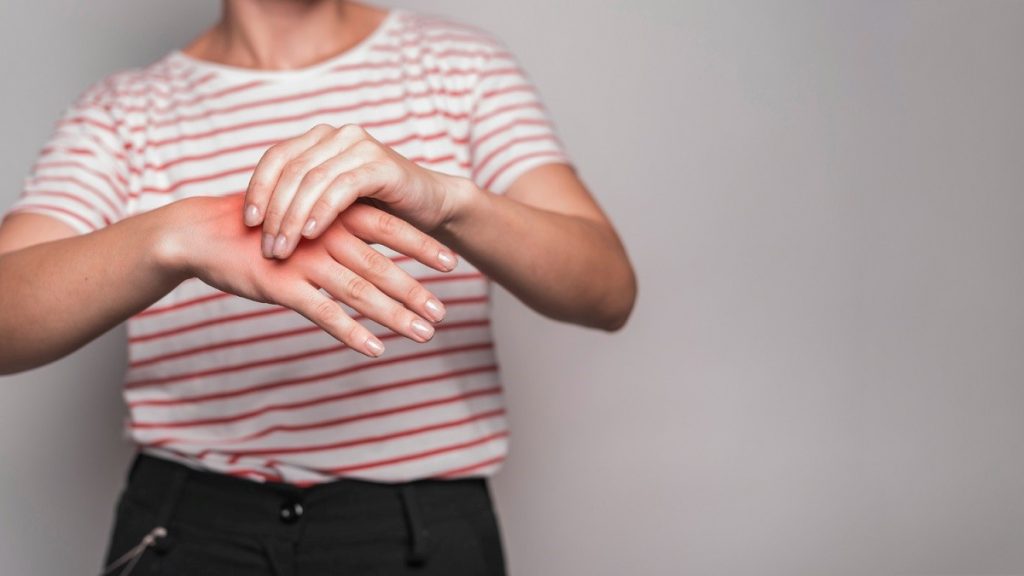Homeopathy is a branch of medicine that has been used by humankind for a very long time. It has been known to cure many illnesses and has a similar acceptance to that allopathic and ayurvedic medicines. Practitioners claim that with the intake of homeopathic medicines, the body starts reacting and starts to heal on its own. The scientific evidence for how homeopathy works is as hazy as a placebo. Before getting deeper into the question “Is homeopathy scientific?”, we are going to learn more about homeopathy and its related factors.
What is Homeopathy?
Homeopathy can be termed “alternative” or “complementary” medicine. It is inherently and substantially different from the usual form of medical treatment, especially Western medicine. This branch of the medical system was invented by a German physician called Samuel Hahnemann. The reason why homeopathy gained traction is mainly that this line of treatment is not highly intrusive, does not harm patients, and has no side effects. Homeopathy has always been in constant conflict with other forms of modern medicine because modern medicine believes in evidence-based medicine and homeopathy focuses on symptoms rather than the underlying causes. Hence, homeopathy has been in a tug of war to claim its position as a relevant medical treatment for a very long time, and critics have dismissed it as nothing but the result of a placebo effect. A large number of people on the internet are searching for “is homeopathy scientific?, its side effects, and accountability.
How does it work?
Homeopathic doctors, or “homeopaths,” as they are widely known, mix an ingredient for the subjective ailment with alcohol or water and dilute it. To activate the potents, the mixture is continuously shaken and stirred after it has been diluted. The mixture is separated into two parts again, and one of them is diluted with alcohol or water until the desired potency is reached. The usual potency of a homeopathic medicine is 200 c. This means that the homeopathic ingredient is diluted with 99 parts water, and this process is repeated over 200 times. Homeopaths say that diluting the ingredients, it creates the technique of nanomedicine. This means that the original ingredient is diluted into nanoparticles, which go beyond detection. The common ingredients used in homeopathic treatment are onions, chamomile, arnica, hypericum, aloe, etc.
Assumptions about homeopathy
The scientific communities of the modern era consider the assumptions on which homeopathy is based to be refuted or baseless. The first and foremost principle on which Hanneman and his fellow physicians have based homeopathy is known as the “concept of similarity,” which is no longer considered as there is no scientific evidence to back it up. The theory of similarity refers to the concept of relating the external similarities of things found in nature to those of the human body. For example, beans that look similar to the organ “kidney” will definitely be a good cure for any ailments related to the kidney. This theory has no rationalization in today’s world.
The next assumption that evolved from the primitive concept of similarity was that anything that causes disease in a healthy man could be used to cure the disease in a sick person. This was a school of thought that was approached by William Cullen and John Brown. Hanneman derived a similar theory by using a sufficient representation of the same.
The next pillar of homeopathy evolved by Hanneman was to test drugs on a healthy person and detect how the body of the healthy person responds to the drugs or medicine. And as per its effect on a healthy person’s body, it can be used to treat a sick person. But such trial standards again do not hold up to much gain in today’s world.
The following assumption is what sparked intense criticism of homeopathy as a medical practice. It involved the fact that the homeopathic practice involves a spiritual healing process, and the potentiating of the substances through diluting was done using ritual shaking blows. The scientific substantiation of such claims is way out of proportion and cannot be accepted by the medical community all over the world. The spiritual energy is said to be awakened during the potentiation of the ingredient that ought to be used as medicine, but this contradicts the physical and chemical principles attached to dilution.
These are the assumptions that form the foundation of the homeopathic principles as devised by Hanneman. The medical community today believes in anything that has solid backing or evidence, which is why these homeopathic principles are discredited. Unless and until that is there, it can be difficult to consider them.
Homeopathy in India
Over the last few years, there has been an increasing acceptance of homeopathy in India. The market for homeopathic medicines is expanding rapidly, by over 25% every year, and a population of 100 million people rely on homeopathy as a treatment method. India is home to a great percentage of doctors who take up homeopathy as their practice, and this percentage is fairly high when compared to other parts of the world. Homeopathy has a relevant acceptance base in India. The medical structure is also effectively promoted by the Government of India and stands at par with other kinds of medical practices like allopathy and ayurveda.
Why Homeopathy in India is Getting Popular?
Homeopathy in India has a long history and it has been followed by many people for the treatment of several diseases. Here are the top reasons why homeopathy is popular in India:
- The reason why the Indian population prefers homeopathy is that it is safe and does not have any negative side effects on people. And small quantities of medicine can help serve a large number of people. Homeopathic medicines are made from natural substances, so the chance of side effects is nullified. The medicines in homeopathy are also non-addictive, which is yet another reason why homeopathy in India is becoming so popular.
- Every treatment in Homeopathy is unique and tailor-made for each patient. Homeopathic medicines are prescribed by doctors after careful understanding of the vitals of the patient. The overall health of the person involves his or her emotional, and mental capacity is considered in homeopathy treatment. As mental health is of utmost priority, they are also used for the treatment of anxiety, depression, etc.
- Invasive treatments are not part of homeopathy. This means that homeopathy doesn’t have any treatments that involve surgical procedures. Many people prefer homeopathy just because they fear such surgical procedures and because the medicines are bound to showcase results as they address the symptoms and conditions of any disease
- Homeopathic medicines are affordable and cheaper when it comes to other types of medical practices. The medicines can be stored for a long time and as they are made from natural substances, they are easily available. They also have many alternatives as natural substances and choices of minerals are readily available.
- It is also known that homeopathic medicines have the potential to cure cancer when administered at the early stages of the disease. It can help the patient revive from the aftereffects of radiation and chemotherapy easily. It also helps heal the pain that is the aftermath of the entire treatment.
Is homeopathy scientifically based?
Homeopathy is not scientifically based on the assumptions we have discussed above. But this doesn’t deter many countries from embracing this practice as a relevant field of medicine. The country of homeopathy’s origin, Germany, is itself a prime example of this, as the homeopathy industry contributes around 100 million euros to the country’s yearly GDP. It also effectively contributes to the food and drug industries of the US as well. Despite the fact that homeopathy has not been scientifically proven, the Indian government has included it as a relevant medical practice in India. India is also home to other medical practices that aren’t part of western medicine, like yoga, naturopathy, Unani, etc.
There are hundreds of studies that claim and evidence the effectiveness of the practice of homeopathy, but none of them projects scientific backing or any sort of proof of how homeopathic medicines are effective in the human body. The largest study conducted to prove the efficiency of homeopathic medicines was conducted in Australia, which came out with the result that the practice can’t be evidently proven to cure any form of the disease.
Conditions homeopathy is commonly used for
Homeopathy is used in the treatment of a wide range of health conditions. Homeopaths believe their medicines can help with any kind of ailment. The following are the various conditions for which homeopathic treatment is recommended:
- Allergies, such as food allergies
- Dermatitis (an allergic skin condition)
- Arthritis
- High blood pressure
- Asthma
- Ear infections
- Hay fever
- Mental health conditions, such as depression, stress and anxiety.
Is Homeopathy safe?
Homeopathic remedies and medicines are generally safe and do not cause any side effects. There are no serious or adverse effects from taking homeopathic medicines. It is necessary to inform the homeopathic doctor about any other medicines so as to avoid interferences between two medicines and unwanted actions between medicines.
What are the risks of Homeopathy?
Everyone who is more inclined to take homeopathic medicines has been reminded not to replace them with conventional medicines and treatments for a very long list of medical conditions. And sticking with homeopathic treatment for certain medical conditions can also result in unfavourable effects or even worsen the existing condition.
Homeopathic medicines as such have never been reported to cause any dire issues, but they have been frequently reported to cause allergic reactions and escalating symptoms far worse than when they started. Interaction with other drugs has also not been effectively reported as homeopathic medicines are given in extremely diluted forms.
Should you try homeopathy?
Are you in a dilemma about whether you should try homeopathy? Despite the fact that there are numerous reasons to try homeopathic remedies for your ailments, a large number of people seek relief from homeopathic medicines. It has not been supported by any kind of scientific evidence that it is capable enough to cure diseases or other pressing ailments. There are no specific bans in India regarding homeopathy, but it is still recommended not to use it as an emergency treatment or cure for any kind of health condition.
Why has homeopathy survived for 200+ years?
While the question of whether homeopathy is scientific or not remains, the one thing we need to admit is that this medicinal branch has survived for more than two centuries. There are numerous obvious reasons why homeopathy has been practised for over 200 years. They are:
- Homeopathy has been in medical treatment since 1796. It has been witness to several advancements that have been happening in the medical field for around 250 years.
- Homeopathy has always proved its evidence of curing diseases and ailments through direct administering in humans whereas western medicines have always used animals to administer and test the medicines. This is a much better way to test the medicines.
- Homeopathic remedies are considerably cheaper than other medicines. A small amount of medicine can also cater to a larger population.
- There are no toxic side effects for the medicine per se and it also doesn’t use any painful surgical procedures as a remedy.
- Each medicine prescribed in homeopathy is suggested after checking the vitals of the patient. Therefore, homeopathy promises to deliver tailor-made medical treatments for its patients.
- Homeopathy which forms a large part of medical treatment in Germany has higher life expectancy rates than in the US.
Hope you got a clear understanding of homeopathy in India and the question, “Is homeopathay scientific?”. Homeopathy has been going through extensive research in an effort to make it a viable form of medical treatment and to be kept on the same pedestal as western medicine, or allopathy. As said earlier, it is used in various alternative treatments and integrative treatments for cancer, fatty liver, liver, cirrhosis, etc. . An increasing number of people have witnessed the unbelievable benefits of home treatment. It also helps patients to deal with the after-effects of cancer treatment as well. The lack of scientific backing is the only drawback, but let us hope that in the future, a viable understanding will be able to support working homoeopathy in its entirety.



